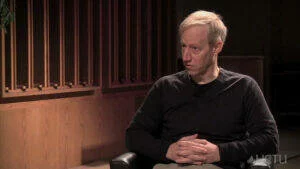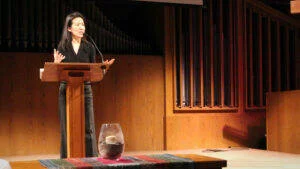After the parable of the talents, we turn to Jesus’ interaction with Martha and Mary in Luke 10:38–42.
Martha opened her home to Jesus and his disciples as they traveled through her village (v. 38). Her sister, Mary, sat at Jesus’ feet, listening to him (v. 39), while Martha was distracted by all the preparations that had to be made (v. 40a). She complains to Jesus about the lack of help from her sister: “Lord, don’t you care that my sister has left me to serve alone? Tell her to help me!” (v. 40b). But Jesus answered:
“Martha, Martha, you are worried and upset about many things, but one thing is necessary. Mary has made the right choice, and it will not be taken away from her.” (vv. 41–42)
The main point of the episode is that listening to Jesus is more important than doing things—even good things. We’ll come back to that in a moment. First, notice some other things going on in the story.
The main point of the episode is that listening to Jesus is more important than doing things —even good things.
Martha does no wrong. She rightly offers hospitality, opening up her home to a group of travellers. And she gets busy with the tasks that hospitality requires, which are literally described as “many acts of service” (v. 40). She is serving. And, she is serving Jesus, no less. Surely we can’t fault her for that. If there is one quirk in her behavior, it is that she appeals to the guest of honor about her sister’s lack of help.
But even this quirk is admirable in a way. She appeals to Jesus because he is clearly seen as the chief authority figure. He is the “Lord,” even though a guest in her own home.
Jesus’ response cannot be taken as a rebuke. Martha has done nothing wrong, per se. It fits better in the category of gentle exhortation than rebuke. Not only does Jesus not correct Mary for just sitting there and listening to him, he commends her for it. Martha, on the other hand is exhorted not to be preoccupied with tasks, but should be more like Mary in this instance. Literally, Mary has “chosen the good portion” (v. 42). Martha is not wrong, but Mary does better.
Furthermore, Mary’s (in)action “will not be taken away from her.” It’s not entirely clear what Jesus means by this, but my guess is that it is not only an affirmation of Mary’s action (or lack thereof); it is also a further subtle critique of Martha’s choice. The benefits of listening to Jesus cannot be taken away. But activities, tasks, and getting things done simply pass by.
Mary not only listens to Jesus. Her posture is likewise important. She sits at the Lord’s feet to listen (v. 39). This is a posture of humility before the Lord. It is an acknowledgement that Jesus is the sort of person for whom you put down the dishes. You pause your activities, as well intended as they may be. It is a sign of respect and humble adoration.
Even works of service take a backseat to listening to Jesus in humble adoration.
Mary’s lack of action speaks volumes. It speaks to who Jesus is. It speaks of the right response to Jesus as Lord. It speaks of the right way to listen to Jesus. Even the faithful accomplishment of good tasks pales in significance next to this.
This passage is an excellent counterbalance to the parable of the tenants. While the parable exhorts us to “get busy” and faithfully steward the resources God has entrusted to us, this episode reminds us that it is even more important to obey God’s instruction at Jesus’ transfiguration: “This is my Son, whom I have chosen; listen to him” (Luke 9:35).
Our achievements, stewardship, and, yes, even works of service take a backseat to listening to Jesus in humble adoration. When Jesus is in the house, stop what you’re doing. Sit at his feet. Listen to him. Then you will have chosen the better portion, and it will not be taken from you.








Comments
Be the first one to make a comment!